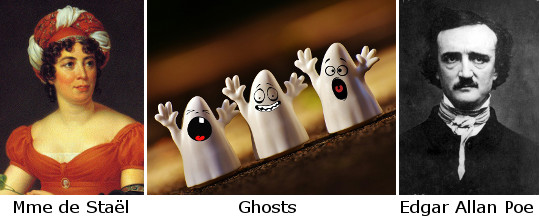Plato? Michel de Montaigne? Hannah More? C. V. Hibbard? Warren J. Clear? Ruth Straub? William Thomas Cummings? Ernie Pyle? Anonymous Chaplain? Anonymous Soldier?
Question for Quote Investigator: When exposed to extreme peril many people reflect on the spiritual or supernatural dimension of existence. The following sayings have been particularly popular during times of war. Here are three instances:
- There are no atheists at the front.
- There are no atheists in the trenches.
- There are no atheists in foxholes.
Would you please examine the provenance of these sayings?
Reply from Quote Investigator: The first and second sayings circulated during World War 1, and the third saying spread during World War 2.
A match referring to the front appeared in “The Ormskirk Advertiser” newspaper of Lancashire, England on October 22, 1914. The Lord Bishop of Liverpool read extracts from a letter he had obtained from an unnamed chaplain. The ellipsis occurred in the original text. Boldface added to excerpts by QI:1
“Do tell the Territorials and soldiers at home that they must know God before they come out, if they would adequately face what lies before them. They will need all the religion they have got, or can have …. There are no atheists at the front, and men are not ashamed to say that though they have not prayed before, they are praying now.”
A match referring to trenches appeared on November 6, 1914 in “The Western Times” newspaper of Devon, England. A speaker at a memorial service for a fallen soldier held at St. Matthias’ Church, Ilsham read from the letter of an unnamed chaplain serving at the front:2
The writer further said, “Tell the Territorials and soldiers at home that they must know God before they come to the front if they would face what lies before them. We have no atheists in the trenches. Men are not ashamed to say that, though they never prayed before, they pray now with all their hearts.”
A match referring to foxholes appeared on April 11, 1942 within a widely distributed story from the Associated Press news service which reported on the fighting and retreat of troops from Bataan in the Philippines. Lieutenant Colonel Warren J. Clear, an officer in the U.S. Army, described an incident during which he heard the foxhole adage spoken by an unnamed sergeant:3
The officer said that he and a sergeant who shared the same fox-hole prayed audibly during one particularly heavy bombing attack. The sergeant, Clear related, observed afterward that “there are no atheists in fox-holes.”
The origin of each of these sayings is uncertain. The most reasonable ascription is anonymous. Yet, some popularizers have been named and citations given further below do list some individuals. Unsurprisingly, non-believers who have served in the military disagree with these adages.
Below are additional selected citations in chronological order.
Continue reading “Quote Origin: There Are No Atheists in Foxholes”